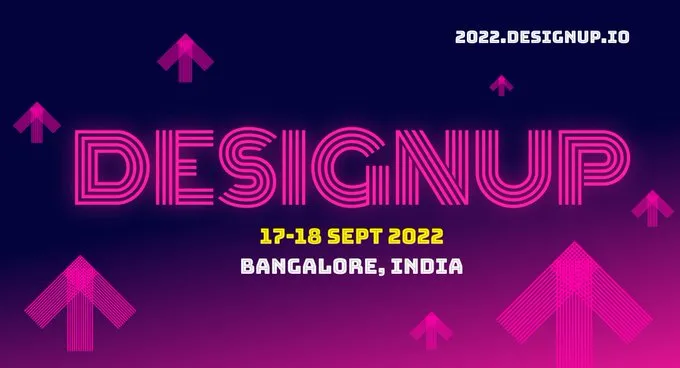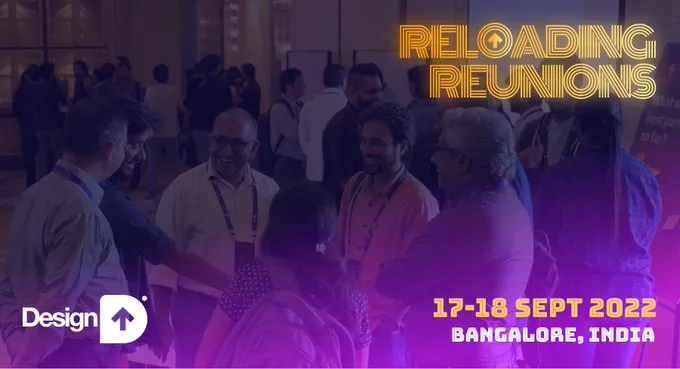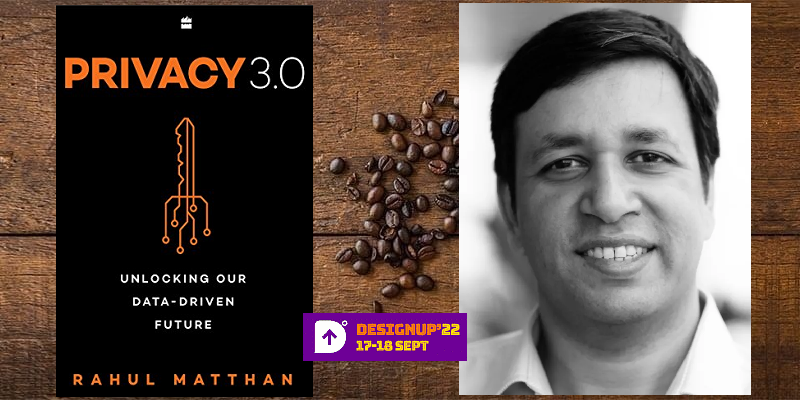Digital platforms, tech literacy, and regulation – DesignUp 2022 insights from Rahul Matthan of Trilegal
As media partner for the upcoming DesignUp 2022 conference, YourStory presents speaker insights and startup tips on tech regulation.
Rahul Matthan is a Partner in Trilegal’s Bengaluru office and heads the TMT (Technology, Media and Telecommunications) practice of the firm. His expertise spans data protection, digital finance, cryptocurrencies, ecommerce, platform technologies, technology acquisitions, and biotech.
Rahul is speaking at the DesignUp 2022 conference in Bengaluru on September 17-18. As media partner, see YourStory’s earlier coverage of DesignUp conferences and sessions from 2021, 2020, 2019, 2018 and 2017.
Rahul has been involved in a number of policy initiatives, including assisting the government in preparing the country’s privacy law. A graduate of National Law School of India, he is also author of Privacy 3.0: Unlocking Our Data-Driven Future.
See YourStory’s Book Review section with takeaways from over 340 titles, and our d-Zen (‘Design Zen’) section for more design resources.
Rahul joins us in this interview on tech regulation, digital literacy, and startup tips.
Edited excerpts below:

YourStory: That’s quite a creative streak you have–from tech to law! How did that come about?
Rahul Matthan: Hardly creative. But I have always been interested in tech. And so, I read a lot about it.
It made a big difference when tech started to get regulated because I realised that because I understood how it worked, I was able to understand how it should be regulated. And things grew from there.
YS: In a world of increasing digital immersion, how can citizen literacy about issues like privacy be improved?
RM: There is no substitute from doing the hard work and actually preparing the content, discussing the issues in open forums, bringing multiple points of view to the fore so that we can learn from many different viewpoints rather than just one.
Where design can play a role is in making these complex issues easier to understand.

YS: Many of our readers are tech startups. What is your advice to them on when they should start integrating legal and ethical aspects of ICTs in their journeys?
RM: Tech startups need to get ahead of regulation by understanding the many ways in which their technology can affect society and building these learnings into their technology. So far, regulators have reacted to the harms that tech has caused but in time they will shape the worlds in which tech operates.
Startups need to see the writing on the wall and start to engage more proactively with the objectives that regulators intend to achieve. Once they understand this, they will be able to build it into their products and align more closely with regulation.
The other piece of advice I will give is to encourage startups to engage with a multi-disciplinary group of stakeholders. It is important to get a basket of viewpoints even if they don’t align with yours or if you are not going to use them. It is important just to know they exist so you can prepare to deal with them.
YS: How would you assess India’s digital environment from a legal perspective? What can India do to become a thought leader and trendsetter in this space?
RM: It may not look like it on the face of it, but India is at the forefront of the digital public infrastructure revolution that is about to sweep the world. The open public platforms we have built are being studied by countries around the world as the third path.
Where the US and China allowed the private sector to control data governance and Europe looked to regulation to control data governance, India is building out techno-legal infrastructure to do this in new and exciting ways.

YS: How did the pandemic affect your work and other activities?
RM: My work was already very remote-friendly. As a tech lawyer, many of my clients were accustomed to working in this manner and my team had also oriented themselves to work from anywhere. So, the work didn’t really suffer.
What we found challenging was the human element that we had taken for granted and which was suddenly missing. We realised that senior folk could get by but the younger lawyers learned a lot from just being in the room while negotiations were done or new issues were discussed. We had to find ways to make that happen online.
YS: What new projects or activities are you involved in these days?
RM: I am engaged in a fair bit of tech reform work, and some academic writing.

YS: What are five must-read books about tech law that our audience should have?
RM:
Hello World by Hannah Fry
System Error: How Big Tech Went Wrong and How we Reboot by Rob Reich, Mehran Sahami and Jereme Weinstein
People vs. Tech by Jamie Bartlett
Surveillance Capitalism by Soshanna Zuboff
And I can’t help plug my own - Privacy 3.0.
YS: How can industry and academia work together to increase tech-law literacy in society?
RM: There is considerable demystification that is required. On both sides. We need to make tech easier to understand and do the same with laws. No one needs to know how code – they just need to know how tech works and what are the harms and other consequences of engaging with it.
No one needs to know all the applicable laws–just the legal frameworks and how they are designed to protect us. This is the sort of demystification that is necessary so that individuals are empowered to take decisions on matters that have a direct bearing on their lives.

YS: How should big-tech firms be showing more responsibility?
RM: I think big tech should develop technologies to be more contextual. They need to recognise that we have many cultural, sociological, and regional differences and that their technologies need to reflect this rather than a single vanilla offering for everyone.
They also need to invest more in understanding the unintended consequences of their actions and taking rapid steps to mitigate it.
YS: How were your earlier books received? What is your next book about?
RM: Generally, well received. I think they are niche topics so they were well received by their intended audience and viewed more apprehensively by the general public.
No immediate plans for another book, but if I do write something it will probably be about India’s digital public infrastructure story.
YS: What is your parting message to the aspiring entrepreneurs and techies in our audience?
RM: I would urge them to work on the hardest problems. The easier problems will find solutions but the hard problems are the ones that will make the most impact.
Edited by Megha Reddy











